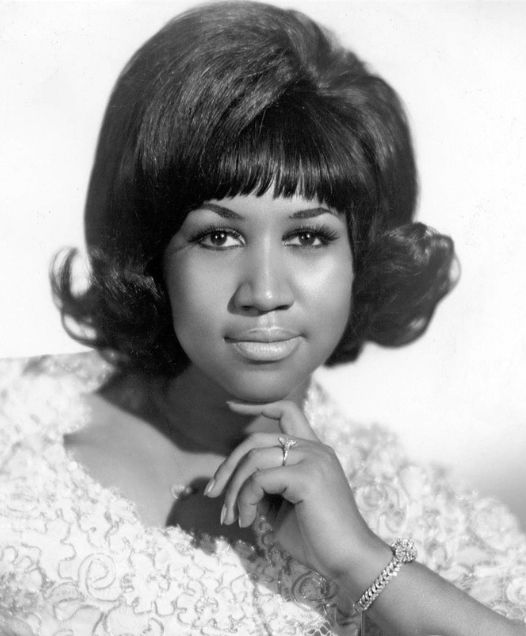A preacher’s daughter, Aretha Franklin started her musical career early, appearing with her famous dad, Revered Clarence LaVaugh Franklin, at Detroit’s New Baptist Church. She is a talented musician who eschewed piano lessons so she could experiment with her own style of playing. By the age of eight, in 1950, Aretha electrified her father’s congregation with her first gospel solo; by fourteen, she’d cut her first gospel record, “Songs of Faith.” Encouraged by her father and his circle of friends and acquaintances, which included Dinah Washington, Reverend James Cleveland, Mahalia Jackson, Clara Ward, Sam Cooke, and Art Tatum, the budding gospel great had her eyes on the glittery prize of pop stardom. She decided to move to New York to pursue her dream in 1960.
The following year she had an album, Aretha, on Columbia, which positioned her as a jazz artist, covering classics like “God Bless the Child,” “Ol’ Man River,” and “Over the Rainbow.” Franklin went on to record ten albums with Columbia, while record execs waffled about how to package her. Jerry Wexler of Atlantic records was a fan of Aretha and signed her immediately when her contract with Columbia ran out. Wexler rightly saw Aretha as an R&B singer. She agreed. Her debut album on Atlantic, I Never Loved a Man, contained the hit “Respect,” which catapulted Franklin to number one on both the pop and the R&B charts. “Respect” became an anthem in 1967 for both feminists and black activists.
“Respect” was just the beginning of a chain of hits for the singer: “Baby, I Love You,” “Natural Woman,” and “Chain of Fools” came hot on the heels of the international smash hit, and soon Aretha was dubbed the “Queen of Soul” and reigned over the music world with the power and authority of her god-given gift.
Aretha was inspired to sing, rather than be a church pianist, when she heard Clara Ward. “From then on I knew what I wanted to do—sing! I liked all of Miss Ward’s records.” She also idolized Dinah Washington and recorded a tribute album in 1964 after Washington’s tragic death at the peak of her prime. Much like Washington did for Bessie Smith, Aretha did an amazing and moving set of covers to honor the brilliance and glory of the Detroit diva entitled “Unforgettable.” And it is—as is her 1985 duet with Annie Lennox, summing up the sherodom of legends of women: “Sisters Are Doin’ It for Themselves.” Amen, Sisters!
This excerpt is from The Book of Awesome Women by Becca Anderson which is available now through Amazon and Mango Media.



